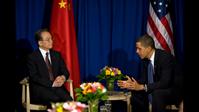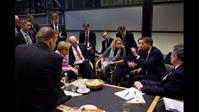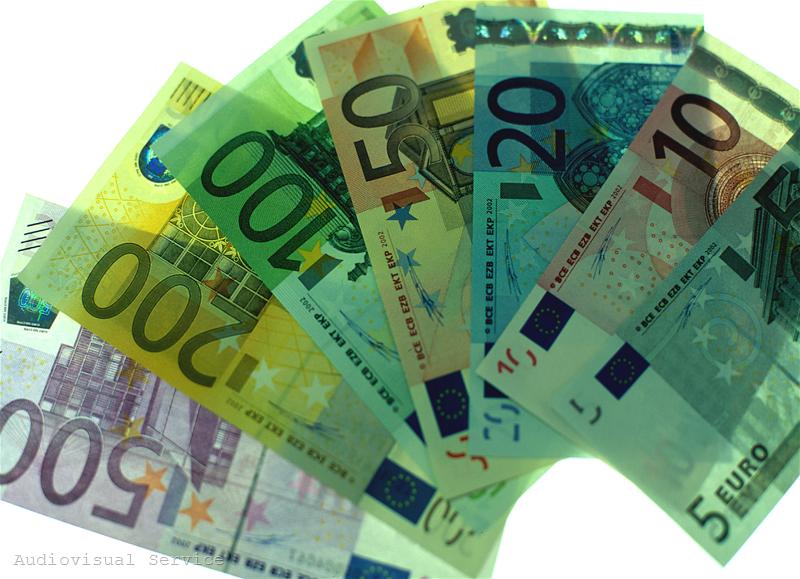2010 will be the year of China
Adelina Marini, January 6, 2010
 Most international and internal forecasts focus on several issues that were important to forecast this time last year too. However, many of them do not count one quite significant factor which affects almost all issues - China. Why?
Most international and internal forecasts focus on several issues that were important to forecast this time last year too. However, many of them do not count one quite significant factor which affects almost all issues - China. Why?
Because for the past months, or even years, China stopped needing the world but the world still needs China. I will mention just some facts that made me define 2010 as the year of China.
- The first and very important fact is that China suffered less from the global financial and economic crisis and in the same time it was among the first countries that indicated an exit from the crisis;
- Beijing's behaviour at the global climate change summit in Copenhagen when a new climate change deal was being negotiated, made it clear that there is no leverage that can be used against China anymore. Quite the opposite. According to participants in the last ditch negotiations, China used a cunning tactics with which it reached what it aimed for - to make a sustainable and long-term deal on climate change fail because this would untie its hands to continue to grow its economy even if this would be for the sake of the environment;
- The third largest economy in the world ended 2009 with a record growth of production for the past 5 years which increased the expectations of a serious economic growth.
The type f economy communist China has and its political structure give the Asian giant the chance to have a firm and consistent policy, very imperial-like. It would be very hard for China to change a course of movement because of democratic elections or because of bad behaviour towards media. Human rights might be very important but they have a price which China is not willing to pay while it is on the patch of intensive catching up, accompanied with a basic change of global order.
Last but not least is the fact that while the EU was entirely engaged with itself for decades, if it ever paid any attention to China it was directed to the quality of toys and in the meantime the US, as if trying to compensate the absence of Europe, did as much harm globally as they could - not only in the form of world conflicts but as a model of world trade - whatever we want, we get. At the moment China is following that very same model - whenever it get get oil it does, it uses natural resources and offers in exchange money and aid, following the principle "the short-term interest is important".
The case with the Chinese invasion in Africa, for example, is very indicative. China gets a lot of raw materials from there in exchange it gives the African states goods. We should not underestimate the enormous development in the past years of the Chinese internal market. This means that if China falls in a situation of closed foreign markets, it can very well continue to develop only through its internal market. Not to mention that the nations that would be willing to close their markets for China are not too many.
The problem is that we have seen this movie before - the West did the same thing for quite a long time and now it would be very hard to find a good argument to convince the developing countries that now it is not their turn. And China as the most powerful among the developing countries in any regard, would be their leader. That is why I decided that 2010 will be the year when China will make a decisive move which will change permanently the way global economy and politics work.
What does all the above bring forward? This will lead to hampering global dialogue on many  world issues which is hard enough even now - from poverty and malnutrition to climate change and agriculture subsidies. It is even possible that a serious incitement of military actions could follow in conflicts, burning for decades because of the lack of enough honesty, openness and justice in the approach of global leading powers. A change of the way negotiations are being held could also be expected. If the current principle of negotiating is - make a concession and I will give you something you want - now it would be much harder because there are not too many things China wants and cannot get by itself.
world issues which is hard enough even now - from poverty and malnutrition to climate change and agriculture subsidies. It is even possible that a serious incitement of military actions could follow in conflicts, burning for decades because of the lack of enough honesty, openness and justice in the approach of global leading powers. A change of the way negotiations are being held could also be expected. If the current principle of negotiating is - make a concession and I will give you something you want - now it would be much harder because there are not too many things China wants and cannot get by itself.
Global changes might have a positive effect, though because this would bring up another point of view to which, people in the West had little or no access at all. But it would be too optimistic to count on the decline of propaganda as a model, quite the opposite.
The bad news is that the West is not prepared for such a transformation. For years the developed countries behaved with China as if with a small child which makes them pull his years because he is tormenting his toys and does not abide with even basic human rights. And as if unexpectedly, the child entered into the hard phase of puberty and now it would be a matter of true wisdom for the developed nations to find the right approach towards China to avoid alienation or even straining the relations with the Asian giant. And, while the developed countries are searching for the right approach, they should bare in mind the mistakes they made with Russia.
And regarding the EU itself, the Union indulged for too long to consider China only as a producer of cheap goods which are a threat to the European producers. There were bans for the Chinese shoes, the Chinese textile, the Chinese toys. The time has come for the EU to finally formulate a clear vision of how it sees China and how it can communicate with it. However, for now there is no indication that the new strategic positions in the European institutions - of the permanent president of the European Council and the EU's foreign minister - have any opinion on the issue. It won't be a bad idea if they start building one this year because it might get too late.
 | © euinside
| © euinside | © Audiovisual Service
| © Audiovisual Service